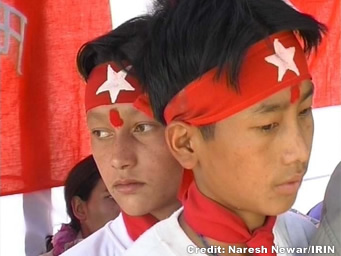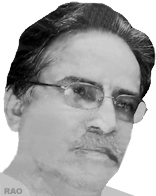"The [post-November 2006] peace process is becoming fragile due to constant violations by the Maoists," said a prominent human rights worker, Subodh Raj Pyakhurel. He said fear was gripping civilians and that they lacked protection as Maoist-affiliated groups defied law and order.
The Maoists signed a peace treaty with the Nepalese government (led by an alliance of seven national parties) in November 2006, giving rise to new hopes of rebuilding the nation, according to human rights groups. "But 2007 only saw a series of violations of the peace agreement at the hands of the Maoist rebels," said an independent analyst who preferred anonymity. He said the problems started after the creation of a new Maoist-affiliated group called the Young Communist League (YCL) which, he said, was responsible for most of the abductions, extortion and threats. Other parties accuse Maoists National political parties also accused the Maoists of violating the peace agreement and hampering the peace process. "The Maoists have not improved their behaviour," said Madhav Nepal, head of the Unified Marxist Leninist (UML) party, one of the country's leading parties. He said the rebels were intimidating other political parties, assaulting and abducting politicians and preventing them from peacefully campaigning in the elections. Denial
Maoist leaders said that if there had been any truth in the allegations in the past, party members had now been told to stop any violations. Media report abductions However, local media continued to report abductions and people being forced to make "donations", as during the armed conflict. Local civilians and businessmen told IRIN YCL members were constantly issuing demands and making threats to get people to pay "donations and Maoist taxes". A
recent report by the UN Secretary-General in January also said the Maoists
had largely failed to curb the excesses of the YCL. It said this trend
reinforced growing doubts within Nepal about the Maoists' commitment to
a peaceful negotiated solution.
Copyright © UN Office for the Coordination of Humanitarian Affairs 2008 [ This report does not necessarily reflect the views of the United Nations] Integrated Regional Information Networks (IRIN), part of the UN Office for the Coordination of Humanitarian Affairs (OCHA).
|






